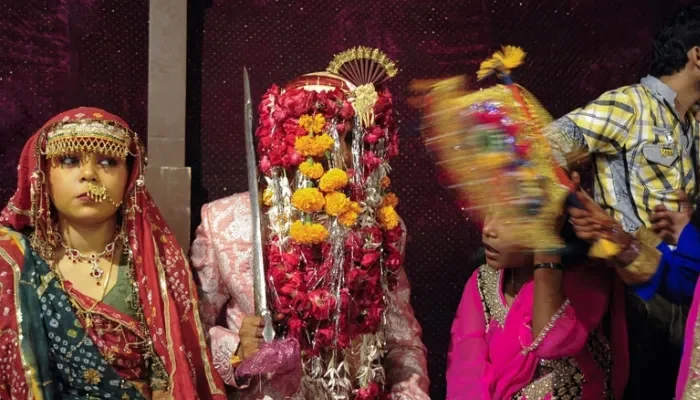ISLAMABAD: The Human Rights Commission of Pakistan (HRCP) has expressed strong concern over the Council of Islamic Ideology’s (CII) rejection of the bill prohibiting child marriage — the legislation recently signed into law by President Asif Ali Zardari.
In a statement issued on Friday, the HRCP criticised the CII’s attempt to obstruct the bill, calling it a much-needed measure to protect minors, particularly girls, from exploitation and abuse.
“Framing child protection as incompatible with religion undermines the rights of every child,” the commission said, adding that the bill sets a “long-overdue legal standard by criminalising child marriage.”
The HRCP urged the state to fulfil its constitutional and international obligations by ensuring the bill’s implementation without yielding to “lopsided interpretations.”
The legislation, which fixes the minimum legal age for marriage at 18, was originally introduced in the National Assembly by Pakistan Peoples Party (PPP) MNA Sharmila Faruqui and later presented in the Senate by Senator Sherry Rehman. It criminalises marriages involving individuals under 18 and imposes penalties on those found violating the law.
However, the CII rejected the bill during a recent meeting chaired by Dr Raghib Hussain Naeemi, terming it “un-Islamic.” According to an official statement from the CII, members argued that setting a legal age limit for marriage and defining underage marriage as abuse do not align with Islamic principles. The council also criticised the government for not seeking its input prior to the bill’s passage.
While acknowledging certain social issues linked to underage marriage, the CII maintained its overall rejection of the legislation, insisting it failed to conform with religious injunctions.
It may be noted that ANP’s Aimal Wali Khan and JUI-F’s members had also opposed the bill in the Senate.
Pakistan ranks sixth globally in the number of child brides, with an estimated 19 million girls married before the age of 18. Nearly half of them become pregnant before reaching adulthood, and only 13% of married girls complete secondary education — compared to 44% of their unmarried counterparts — significantly limiting their independence and opportunities.

